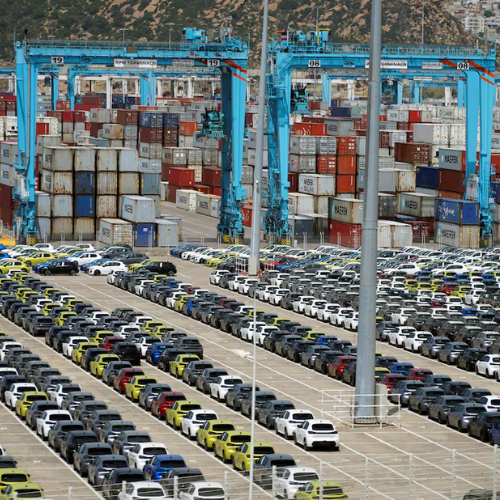The United States government has announced a steep 25% tariff on all imported vehicles, including those made by American manufacturers outside the country. This means that cars not built within US borders will now cost much more due to the hefty tax. The decision, pushed forward by President Donald Trump, is meant to encourage car production within the United States and reduce reliance on foreign-made vehicles.
The new tariffs apply to all countries that export cars to the US, including major automobile producers like China, Canada, Japan, South Korea, and European nations. Even American companies that assemble cars overseas will be affected, making it more expensive for them to bring their vehicles back home for sale.
President Trump praised the move as a big win for the American car industry. He stated that the policy would help bring back auto manufacturing jobs and make the US less dependent on foreign products. According to him, this is a step towards making the country “stronger and more independent.”
Urgent Trade Crackdown: South Korea Investigates U.S. Exports Amid Tariff Chaos
Higher Car Prices and Limited Choices for Consumers
Industry experts and carmakers are raising concerns about the impact of the tariff. They argue that the new tax will make cars significantly more expensive in the US. Since many vehicles sold in the country are built outside its borders, companies will either have to raise prices or absorb the costs, which could affect their profits.
Consumers will likely see car prices go up by thousands of dollars. This increase comes at a time when many Americans are already struggling with rising living costs. Industry leaders warn that the tariff will reduce the number of affordable car options available to buyers, making it harder for families to purchase new vehicles.
Auto industry representatives also caution that the tariffs could have a negative effect on jobs. While the goal is to increase manufacturing inside the US, many companies rely on global supply chains. If car companies struggle to absorb costs, they might reduce production or lay off workers to balance their budgets.
Global Tensions Rise as Trade War Escalates
The US decision to impose high tariffs on imported cars is expected to increase tensions with key trading partners. Countries that export large numbers of cars to the US, including China, Canada, Japan, South Korea, and Germany, are likely to push back against the move. Some nations may introduce their own tariffs on American products in response, leading to a potential trade conflict.
China Slams U.S. Tariffs, Warns of Supply Chain Disaster
Economists predict that the decision could trigger strong reactions from foreign governments. These nations might take legal action through international trade organizations or impose countermeasures that hurt US exports. If that happens, American businesses that sell goods overseas could face difficulties, leading to economic strain beyond just the car industry.
The move comes after President Trump previously criticized high tariffs on American cars in other countries, particularly India. He had earlier called for fairer trade policies and had promised to take strong action if necessary. Now, with this 25% tariff in place, the US is making a bold statement in its trade policies.
With rising car prices, potential job losses, and growing tensions with other countries, the impact of this tariff is expected to be felt across various sectors of the economy. How businesses and consumers will adapt to these changes remains to be seen.


